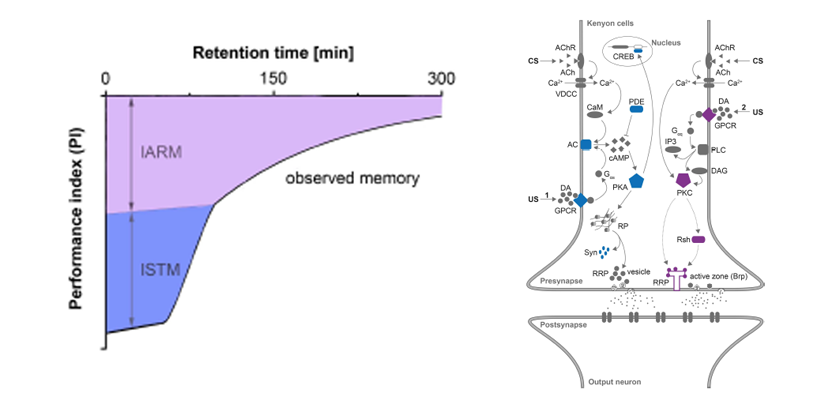Are there so-called "learning genes" responsible for acquiring environmental stimuli and storing them as memories in the brain? In this project, we use molecular biology and behavioral biology techniques to identify relevant signaling pathways in the genome of Drosophila and analyze their function.
Project
Learning and memory are highly complex and dynamic processes. Both often consist of different phases coordinated by various neural and genetic mechanisms. In adult Drosophila, it has been shown that memory following aversive classical conditioning comprises both a labile short-term memory and medium- to long-term consolidated memory phases.
Approach
In this project, we are investigating larval memory formation with regard to its different memory phases. In addition to neuronal circuits, we are particularly interested in understanding the neurotransmitters, neuromodulators, and molecular signaling pathways ("learning genes") involved in synaptic plasticity and memory formation.
Aim
Recent results indicate that larvae, following aversive classical conditioning, form two parallel memory phases: a short-lived component dependent on the cAMP/PKA signaling pathway and a second consolidated form (anesthesia-resistant memory, ARM) requiring the functional genes radish and bruchpilot.
Publications
Odor-taste learning in Drosophila larvae
Widmann A, Eichler K, Selcho M, Thum AS, Pauls D.
J Insect Physiol. 2018 Apr;106(Pt 1):47-54.
DOI: 10.1016/j.jinsphys.2017.08.004
Genetic Dissection of Aversive Associative Olfactory Learning and Memory in Drosophila Larvae
Widmann A, Artinger M, Biesinger L, Boepple K, Peters C, Schlechter J, Selcho M, Thum AS.
PLoS Genet. 2016 Oct 21;12(10):e1006378.
DOI: 10.1371/journal.pgen.1006378
